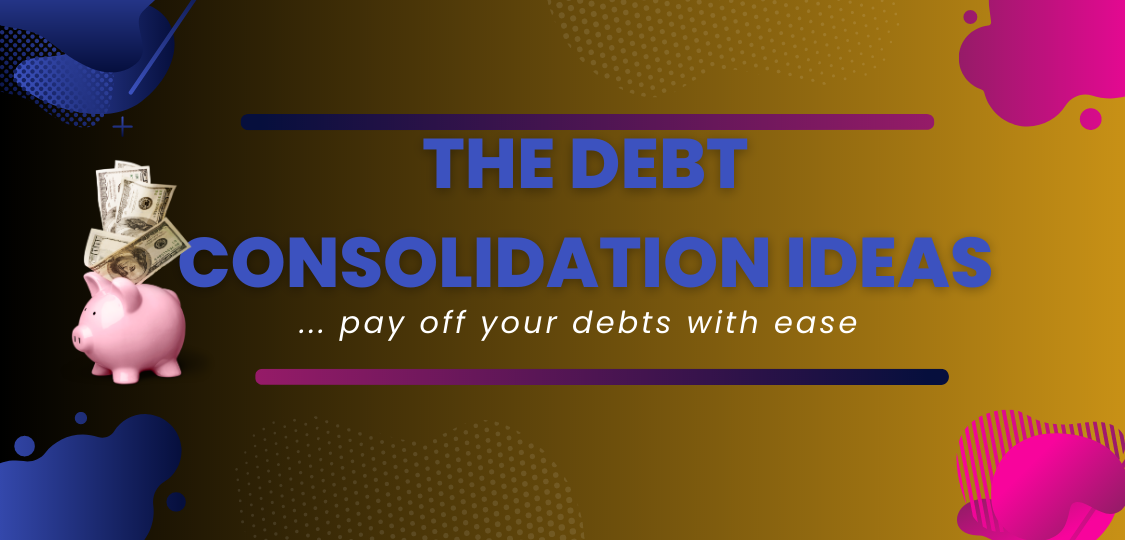Introduction
Debt management is essential for attaining financial independence and stability. Understanding effective debt management strategies as a novice is the first step in gaining control of your financial situation. This article intends to provide you with actionable and applicable strategies for effectively managing your debt.
1. Assessing Your Debt Situation
Prior to tackling your debt, it is essential to evaluate your current financial situation. Calculate your total debt and organize it by category. This may include credit card debt, student loans, auto loans, and other balances. Understanding the extent of your debt will make it evident what needs to be addressed.
Take note of each debt's interest rates, minimum payments, and terms. This will help you prioritize your debt repayments and identify the debts with the highest interest costs over time.
2. Creating a Realistic Budget
A budget is an effective instrument for tracking your income and expenses. It enables you to comprehend where your money is going and make informed financial decisions. When constructing a budget, you should begin by listing all of your income sources, followed by a record of your monthly expenses.
To effectively manage your debt, you must reduce superfluous expenses and allocate a portion of your budget to debt repayment. Consider cutting back on areas such as dining out, entertainment, and subscription services. Every dollar saved can help you pay off your debts more quickly.
3. Prioritizing Your Debts
A budget is an effective instrument that allows you to monitor your income and expenditures. It enables you to make informed financial decisions by allowing you to comprehend where your money is going. Begin constructing a budget by listing all of your monthly income sources, followed by a list of your monthly expenses.
To effectively manage your debt, you must reduce superfluous spending and allocate a portion of your budget to debt repayment. Consider areas such as dining out, entertainment, and subscription services where you can reduce spending. Every dollar saved can make a difference when it comes to paying off debts more quickly.
4. Negotiating with Creditors
Do not be hesitant to negotiate improved terms with your creditors. Creditors desire payment, and they may be amenable to a solution that benefits both parties.
Consider negotiating for reduced interest rates, longer payment terms, and even settlements. Describe your financial situation and indicate your willingness to repay your debts. Be prepared to provide documentation to support your case, such as proof of income or financial hardship.
Communication and follow-up are crucial throughout this process. Remember to maintain records of all agreements and communications with your creditors to prevent future misunderstandings.
5. Exploring Debt Consolidation Options
Debt consolidation is an additional method for simplifying the debt repayment process. It entails consolidating multiple obligations into one loan or credit account. Consolidating your payments into a single monthly payment can make managing your finances simpler.
There are numerous options for consolidating debt, including balance transfers, personal loans, and home equity loans. Balance transfers allow you to transfer credit card balances with high interest rates to a card with a lower interest rate. Personal loans can be used to consolidate multiple obligations into a single loan with a fixed monthly payment and interest rate. Home equity loans allow homeowners to pay off high-interest obligations with the equity in their homes.
Carefully evaluate the terms, fees, and interest rates associated with each option when contemplating debt consolidation. Choose an option that aligns with your financial objectives and allows you to save money over time.
6. Seeking Professional Help
Occasionally, managing debt can become overwhelming, and professional assistance can provide valuable guidance. Individuals struggling with debt can receive assistance through debt counseling or credit counseling.
These professionals can help you create a customized debt management plan, negotiate with creditors on your behalf, and educate you on money management so you can make better financial decisions in the future. Before selecting a counseling service, conduct research on reputable organizations and solicit recommendations to ensure you receive dependable assistance.
7. Building Healthy Financial Habits
Developing sound financial practices is crucial for long-term debt management. Once you have paid off your obligations, it is crucial to avoid repeating the behaviors that led to your debt in the first place.
Start by establishing an emergency fund to cover unforeseen costs. The ability to save will prevent future debt accumulation. Consider automating your savings by setting up automatic transfers between your checking and savings accounts.
Avoid incurring new debt unless absolutely essential. Spend carefully and differentiate between desires and necessities. In order to accelerate your debt repayment, you should also search for opportunities to increase your income through side jobs or freelance work.
Regularly monitor your progress and recognize your accomplishments along the way. Observing a decline in your obligations and an improvement in your financial stability will motivate you to continue on the path to debt liberation.
Conclusion
Effective debt management strategies for novices are crucial for gaining control of one's financial future. By evaluating your debt situation, creating a realistic budget, prioritizing your debts, negotiating with creditors, investigating debt consolidation options, seeking professional assistance when necessary, and establishing healthy financial habits, you can surmount your debt and pave the way to financial independence.
Remember, managing debt requires fortitude, perseverance, and discipline. It may not happen immediately, but you can reach your objective of becoming debt-free with consistent effort and the right strategies. Implement these strategies immediately to assume control of your financial well-being.


No comments:
Post a Comment